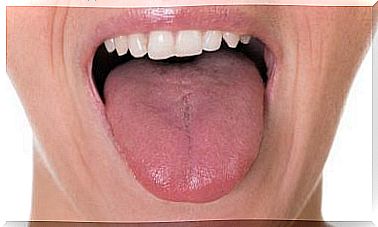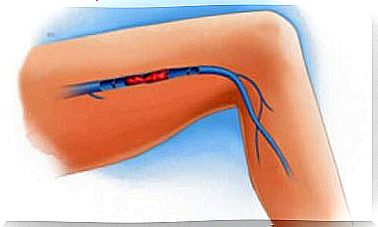Emergency Relief For Gingivitis: 8 Home Remedies
These home remedies can be very effective, but you should still go to the dentist to find out the exact causes of the inflammation.
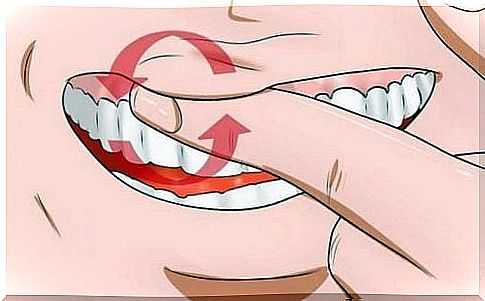
Oral infections, poor hygiene or dental treatment can lead to inflammation of the gums. Today we are going to explain to you what you can do if you have inflammation of the gums .
In most cases, there is also strong contact sensitivity, halitosis, bleeding gums and the receding of the gums. Unpleasant pain occurs when swallowing and brushing teeth.
Even if the inflammation often goes away on its own, it is useful to know treatment options to prevent complications.
In today’s article, we ask you 8 effective treatments for gingivitis before, with which you can relieve the symptoms.
Treating gingivitis naturally
1. Clove oil
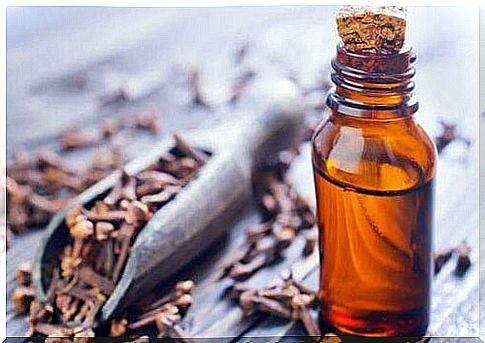
Clove oil contains active ingredients with strong analgesic and anti-inflammatory properties. In addition, it has an antibacterial effect and thus helps to reduce causative pathogens. The oil also helps with bad breath.
How do I use clove oil?
- Moisten some cotton wool with clove oil and rub it on the painful area for 2 or 3 minutes.
- Repeat the application twice a day.
- You can also mix 5 drops of clove oil with lukewarm water and use it as a mouthwash.
2 onions
Onions have germicidal and antimicrobial ingredients that are very useful in treating gingivitis.
The sulfur compounds it contains, as well as the onion’s antioxidants, relieve pain and other symptoms caused by harmful germs in the oral cavity.
How do I use onions?
- Chop up a piece of raw onion. Chew it for a few minutes to relieve the pain.
- You can also prepare a little onion juice and apply it with cotton wool.
- Repeat the application until the inflammation subsides.
3. Vanilla extract
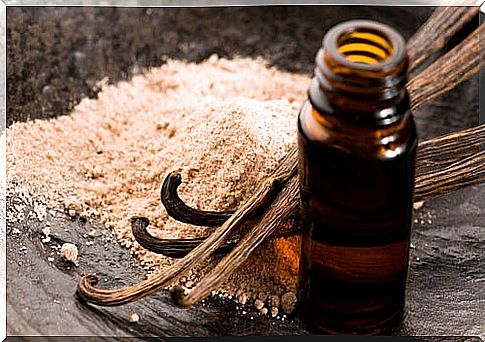
Vanilla extract has anti-inflammatory and soothing properties that help treat tooth and gum pain.
Its use inhibits bacterial growth and neutralizes bad odors.
How do I use this home remedy?
- Dip a cotton swab into the vanilla extract to apply the agent directly to the inflamed gums.
- Use this home remedy 4 times a day for quick relief.
4. Ice cubes
The use of ice cubes is used to numb the nerve endings that cause pain when the gums are swollen.
This remedy promotes blood circulation and accelerates recovery.
How do I use the ice cubes?
- Wrap several ice cubes in a thin cloth. Put it on your cheek in the area where you feel the pain.
- Perform a short massage (3 minutes) and repeat the application 2 times a day.
5. Lime

The fresh juice of a lime is an inexpensive and very effective remedy for gingivitis.
Lime juice has an antibiotic effect and therefore calms infections. At the same time, it protects against bacteria that lead to halitosis.
How do I use lime juice?
- Mix the fresh juice of one lime with lukewarm water and use this mixture as a mouthwash.
- Repeat the application 3 times a day.
6. Cranberry juice
Natural cranberry juice contains antioxidants and anti-inflammatory agents in concentrated form. These improve oral health.
This can also regulate the pH of the saliva and inhibit the spread of fungi.
How do I use cranberry juice?
- Drink half a glass of cranberry juice twice a day.
7. apple

The apple is rich in water and antioxidants. When you eat an apple , the mouth is cleaned of food residues and bacteria.
This can also relieve inflammation of the gums and neutralize bad breath.
How do I use the apple?
- Cut a piece of apple and chew it after each main meal.
- In the case of gingivitis, perform the treatment 4 to 5 times a day.
8. hydrogen peroxide
Rinsing the mouth with hydrogen peroxide can help control gingivitis and other infections that affect gum health.
This agent has a strong antimicrobial effect and helps fight infections.
How do I use hydrogen meroxide?
- Put two tablespoons of hydrogen peroxide in half a cup of lukewarm water and gargle for 2 minutes after brushing your teeth.
- Repeat the application 2 to 3 times a day.
Choose one of the remedies listed for quick relief of uncomfortable gum inflammation.
If the symptoms do not improve after a few days, please visit your dentist so that they can find out the exact causes and initiate appropriate treatment.
Cover image courtesy of © wikiHow.com
